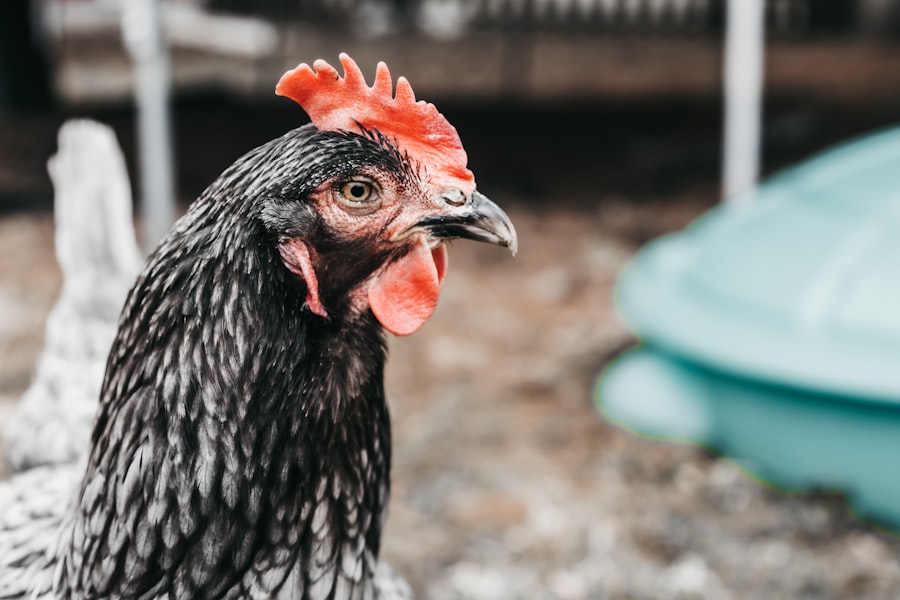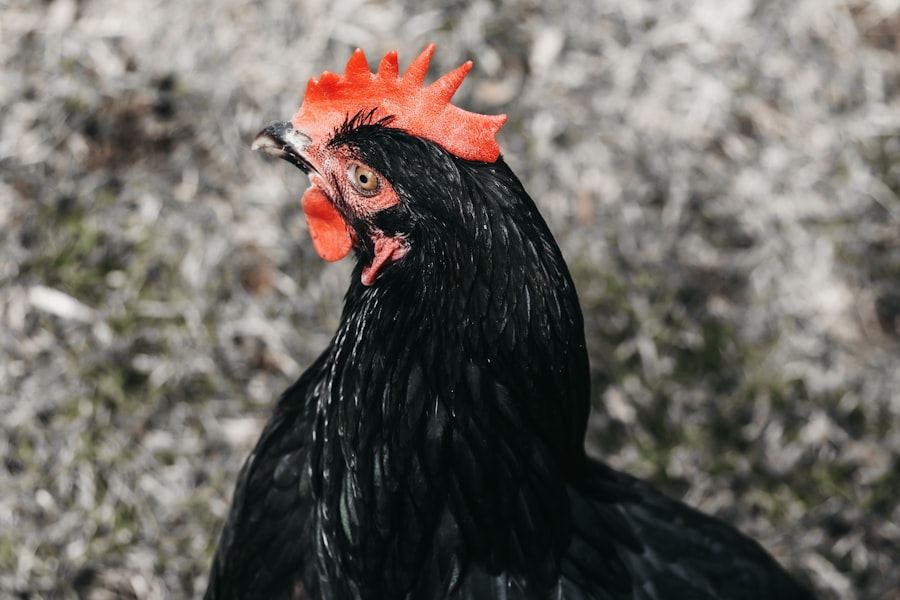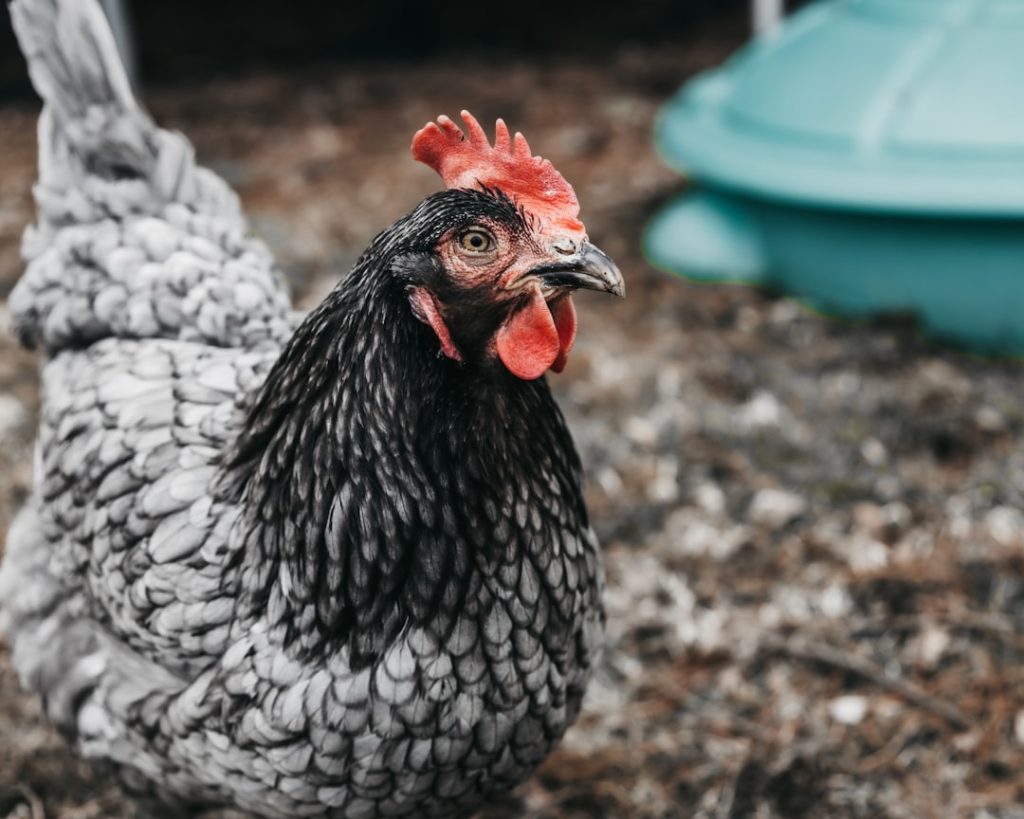Understanding the predators that threaten chickens is essential for their protection. Common predators include foxes, raccoons, coyotes, hawks, owls, and domestic dogs. Each predator has distinct hunting habits and behaviors, making it important to research and understand the specific threats in your area.
Foxes are known for their cunning and ability to dig under fences, while hawks and owls are skilled aerial hunters. Comprehending predators’ natural instincts and hunting patterns can help anticipate and prevent attacks. For example, raccoons are known for their dexterity and ability to open latches and doors.
This knowledge emphasizes the importance of securing coops with sturdy locks and latches. By understanding local predators and their hunting habits, chicken owners can implement proactive measures to safeguard their flock. This includes proper fencing, secure coop construction, and vigilant monitoring of the surrounding environment.
Such precautions can significantly reduce the risk of predator attacks and ensure the safety of the chickens.
Table of Contents
Key Takeaways
- Predators can include raccoons, foxes, hawks, and even domestic dogs and cats.
- Secure the coop by using heavy-duty locks, burying wire mesh around the perimeter, and using predator-proof materials.
- Use deterrents such as motion-activated lights, sound machines, and predator urine to keep predators away from the coop.
- Keep chickens safe during free range time by supervising them, providing hiding spots, and using fencing to create a safe area.
- Proper lighting and fencing can help deter predators and keep chickens safe at night.
- Regularly check for signs of predators such as tracks, droppings, and damage to the coop or fencing.
- Train chickens to seek shelter by providing a safe and secure coop, using treats to encourage them to go inside, and closing the coop at night.
Securing the coop
Reinforcing the Coop Structure
In addition to inspecting the coop, consider installing hardware cloth around the perimeter to prevent digging from predators like foxes and raccoons. This wire mesh is more durable than traditional chicken wire and can help keep predators at bay.
Securing Doors and Windows
It’s also important to invest in high-quality locks and latches for all doors and windows. Raccoons, in particular, are notorious for their ability to open latches and doors, so using secure locks is essential.
Adding Extra Layers of Protection
Consider adding a predator-proof apron around the perimeter of the coop to prevent digging from predators. This can be achieved by burying hardware cloth or wire mesh around the base of the coop to deter predators from digging underneath. By securing the coop with strong fencing, locks, and reinforcements, you can create a safe and protected environment for your chickens.
Using predator deterrents

In addition to securing the coop, using predator deterrents can help keep potential threats at bay. One effective deterrent is motion-activated lights or sound devices that startle predators when they approach the coop. These devices can help deter nocturnal predators like raccoons and foxes by making them feel exposed and vulnerable.
Another effective deterrent is using scent-based repellents such as predator urine or ammonia-soaked rags placed around the perimeter of the coop. These scents can mimic the presence of larger predators and discourage smaller ones from approaching. Consider installing a predator-proof electric fence around the perimeter of the coop to deter larger predators like coyotes and dogs.
Electric fences deliver a mild shock to any animal that comes into contact with them, effectively deterring predators from attempting to breach the perimeter. Additionally, consider using guard animals such as dogs or geese to help protect the chickens from potential threats. These animals can serve as an extra layer of defense against predators and help keep your chickens safe.
Keeping the chickens safe during free range time
Allowing your chickens to free range can provide them with exercise and access to natural foraging opportunities, but it also exposes them to potential predators. To keep your chickens safe during free range time, consider using portable fencing or chicken tractors to create a secure area for them to roam. These enclosures can be moved around the yard to provide fresh foraging opportunities while keeping the chickens protected from potential threats.
Another option is to supervise free range time and use deterrents such as noise makers or water sprayers to scare off any potential predators that approach. By actively supervising free range time, you can quickly intervene if a predator is spotted and ensure the safety of your chickens. Additionally, consider providing hiding spots and shelters in the yard where chickens can seek refuge if they sense danger.
By taking proactive measures during free range time, you can help keep your chickens safe while still allowing them to enjoy the benefits of free ranging.
Proper lighting and fencing
Proper lighting and fencing are essential components of keeping your chickens safe from predators. Install bright lighting around the perimeter of the coop to deter nocturnal predators such as raccoons and foxes. Motion-activated lights can startle predators and make them feel exposed, discouraging them from approaching the coop.
Additionally, consider using solar-powered lights to illuminate the area around the coop without increasing energy costs. When it comes to fencing, choose a sturdy material such as hardware cloth or welded wire to create a secure barrier around the coop. Ensure that the fencing is buried at least a foot into the ground to prevent digging from predators like foxes and raccoons.
Consider adding a predator-proof apron around the perimeter of the coop by burying wire mesh or hardware cloth to deter digging. By investing in proper lighting and fencing, you can create a secure environment for your chickens and deter potential threats from approaching.
Regularly checking for signs of predators

Identifying Potential Threats
By regularly inspecting the area for signs of predators, you can quickly identify potential threats and take proactive measures to protect your chickens.
Enhancing Security with Cameras
Additionally, consider installing security cameras around the coop to monitor for any signs of predator activity. This can provide valuable insight into potential threats and help you take swift action to keep your chickens safe.
Vigilance is Key
By staying vigilant and regularly checking for signs of predators, you can help ensure the safety of your flock.
Training the chickens to seek shelter
Training your chickens to seek shelter during times of danger can help keep them safe from potential threats. Provide ample hiding spots and shelters in the yard where chickens can seek refuge if they sense danger. Encourage them to use these shelters by placing treats or food inside to entice them to seek shelter when needed.
Additionally, consider using a designated call or sound to signal to the chickens that there is danger present. By consistently using this signal when there is a potential threat, you can train the chickens to recognize it as a warning to seek shelter. By training your chickens to seek shelter during times of danger, you can help keep them safe from potential predators.
In conclusion, understanding the behavior of predators, securing the coop, using deterrents, keeping chickens safe during free range time, proper lighting and fencing, regularly checking for signs of predators, and training chickens to seek shelter are all essential components of keeping your flock safe from potential threats. By taking proactive measures and staying vigilant, you can create a secure environment for your chickens and help ensure their safety and well-being.
If you’re looking for tips on how to keep your chickens safe from predators, you might also be interested in this article on chicken coop nest boxes. Creating a secure and comfortable environment for your chickens is essential for their safety and well-being.
FAQs
What are common predators of chickens?
Common predators of chickens include foxes, raccoons, coyotes, dogs, cats, hawks, owls, and snakes.
How can I keep my chickens safe from predators?
You can keep your chickens safe from predators by securing their coop with sturdy fencing, using predator-proof latches on doors, installing motion-activated lights or alarms, and using guard animals such as dogs or llamas to deter predators.
What are some signs that my chickens are being targeted by predators?
Signs that your chickens are being targeted by predators include missing or injured chickens, feathers scattered around the coop, and evidence of digging or attempts to break into the coop.
Are there any natural deterrents for predators?
Some natural deterrents for predators include planting thorny bushes or using strong-smelling herbs around the coop, as well as keeping the area around the coop clean and free of hiding spots for predators.
What should I do if I spot a predator near my chicken coop?
If you spot a predator near your chicken coop, you should make loud noises, use bright lights, or even physically chase the predator away to deter it from returning. It’s also important to reinforce the security of your coop to prevent future attacks.
Meet Walter, the feathered-friend fanatic of Florida! Nestled in the sunshine state, Walter struts through life with his feathered companions, clucking his way to happiness. With a coop that’s fancier than a five-star hotel, he’s the Don Juan of the chicken world. When he’s not teaching his hens to do the cha-cha, you’ll find him in a heated debate with his prized rooster, Sir Clucks-a-Lot. Walter’s poultry passion is no yolk; he’s the sunny-side-up guy you never knew you needed in your flock of friends!







